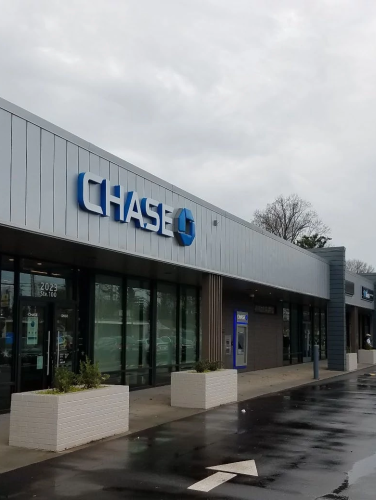
McDonald's Cafeteria
(ca. 1970)
The birthplace of a popular restaurant, entrepreneurial incubator, and social hub for the West End’s African American community in the late twentieth century.
2023 Beatties Ford Rd, Charlotte, NC 28216
The 1970 McDonald’s Cafeteria and Mini-Center building was more than the first location of the popular restaurant founded and operated by Charlotte native and African American entrepreneur John William McDonald (1921-1995). The Mid-Century Modern design shopping plaza served as a communal foundation for West Charlotte’s predominantly Black residents and an incubator for the city’s growing Black entrepreneurialism in the late twentieth century. The restaurant quickly became a favored meeting place for community groups organizing grassroot efforts to advance civil rights and social justice in Charlotte, while the remainder of the Mini-Center housed several local Black-owned and operated businesses.
Property Quick Links
Born the son of a farmer in Charlotte’s Paw Creek community on April 18, 1921, McDonald got his start in the restaurant business working at New York Cafe in uptown Charlotte. He and his family – wife Annie Lou Hill (1921-1971) and daughter Brenda – moved to Brooklyn, New York in 1943 where McDonald worked as a cook in a hotel, seafood house, and steak restaurant. In 1949, he opened his own restaurant, McDonald’s Dining Room in Brooklyn’s Bedford-Stuyvesant section. What began as a ten-seat grill eventually expanded to a space that could accommodate 175 people. Ready for retirement and feeling called to return to his hometown, he handed over ownership of McDonald’s Dining Room to his daughter and son-in-law.
Upon his return to Charlotte, McDonald noticed the growing popularity of buffet-style cafeterias and decided to launch himself back into the restaurant industry. He and Annie Lou purchased the corner parcel of land on Beatties Ford Road and LaSalle Street in 1968. By 1970, their Mini-Center opened for business with McDonald’s Cafeteria, a seafood store, a beauty and barber shop, an insurance and real estate office, and a small grocery store. Remembering his early days of struggle in Brooklyn, McDonald employed local college students at the restaurant and leased the other commercial spaces to young businesspeople for relatively low rates. From 1970 to 1971, McDonald invested significant personal funds into his restaurant and Mini-Center, helping to revitalize the Beatties Ford Road corridor of the historic West End and facilitate new Black-owned businesses. Deeply involved in the local community, McDonald frequently hosted city officials and politicians at his eatery.
By 1981, needing more space, McDonald broke ground on a larger building at 2812 Beatties Ford Road, where he moved the cafeteria in 1982. He retained ownership of the Mini-Center until 1994, continuing to make commercial space available to Black business owners on reasonable terms. His new space, known for traditional southern and soul food, was a Black social and political hub through the 1990s. With a 250-person seating capacity and an adjoining 300-person banquet room, the new McDonald’s Cafeteria was widely regarded as Charlotte’s most popular non-chain restaurant. Over the years McDonald expanded his business holdings to include the McDonald's Inn hotel and the Fun City amusement park complex, collectively becoming one of the most successful Black-owned businesses in the West End and a catalyst to major economic growth along the Beatties Ford Road corridor.
